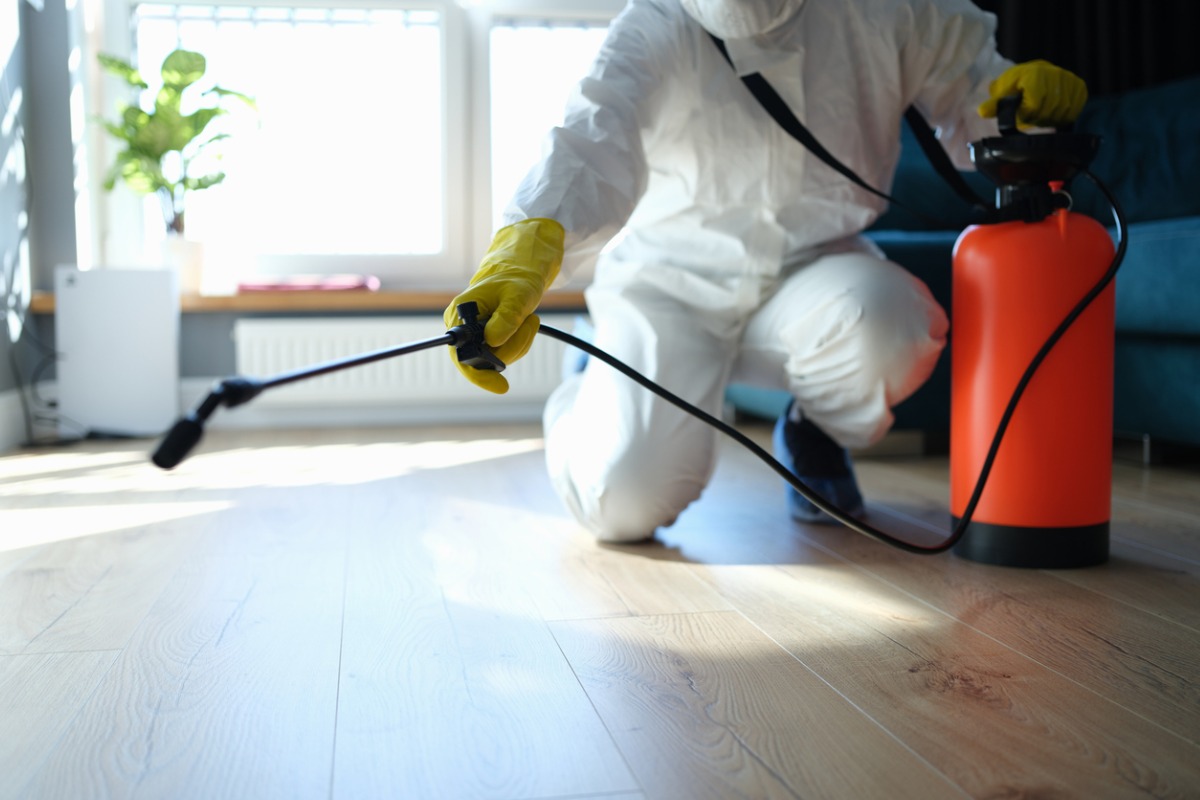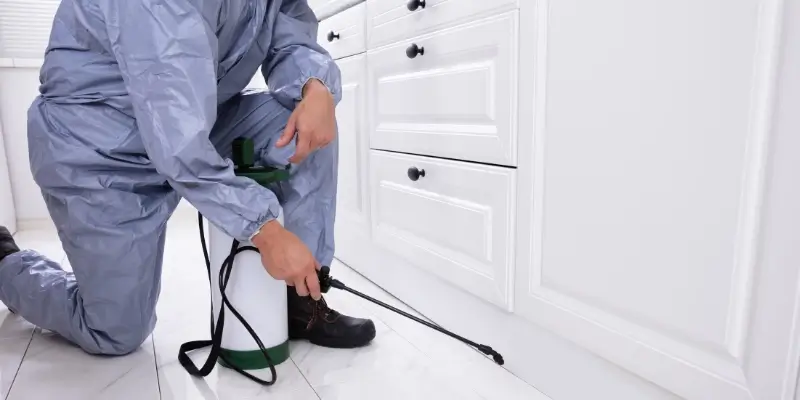Safe and Reliable Bug Control for Lasting Protection
Reliable pest administration needs a diverse strategy that stabilizes ecological honesty with the requirement for efficient pest reductions. The subtleties of these approaches might not be instantly clear, motivating a closer examination of the techniques that can lead to lasting insect control outcomes.
Recognizing Parasite Control Methods
Parasite control encompasses a selection of approaches focused on managing and eradicating undesirable insects and rodents that can intimidate both health and wellness and residential or commercial property. Comprehending these techniques is important for reliable parasite monitoring.
The key groups of insect control techniques include mechanical, organic, and chemical strategies. Mechanical methods entail physical obstacles and catches to avoid pest entrance and capture unwanted varieties. As an example, using screens on windows or using sticky catches can significantly minimize parasite populaces without introducing harmful substances.

Chemical insect control is commonly the most identified approach, utilizing chemicals to remove insects. These chemicals can be efficient however should be used with caution to prevent damaging impacts on non-target species and the atmosphere.
Advantages of Eco-Friendly Solutions
Just how can environmentally friendly remedies transform bug control practices? The adoption of environment-friendly insect control techniques supplies numerous advantages, significantly boosting the efficiency and safety of insect management.
One more advantage is the favorable effect on neighborhood biodiversity. Eco-friendly remedies are made to target particular parasites while protecting valuable bugs and wild animals, advertising a well balanced ecosystem. This strategy aligns with the growing consumer need for lasting practices, enhancing the track record of parasite control suppliers.
Integrated Parasite Management Techniques
The application of green solutions naturally leads to the adoption of Integrated Insect Management (IPM) approaches, which better boost pest control efficacy. IPM is a holistic method that integrates several strategies to handle insect populations while reducing environmental impact. This technique emphasizes using biological, cultural, mechanical, and chemical controls, ensuring a well balanced and lasting technique of insect administration.
One fundamental aspect of IPM is the thorough assessment of parasite task and environmental conditions. By monitoring pest populaces and determining their life cycles, practitioners can implement targeted treatments that interrupt the insect's habitat or lifecycle, lowering dependence on chemical pesticides. Additionally, cultural techniques such as crop rotation and environment control can significantly lessen bug establishment and recreation.
An additional go vital component is the usage of biological control representatives, such as helpful bugs or microorganisms, which can normally suppress bug populations. When chemical applications are essential, IPM prioritizes using low-risk chemicals and applies them precisely, minimizing direct exposure to non-target organisms and human beings.
Integrating IPM techniques not only boosts pest control performance but also promotes a safer environment, lining up with the growing demand for sustainable methods in bug management.
Safe Practices for Home Owners
Comprehending the value of safe methods in parasite control can encourage homeowners to efficiently handle insect issues while guarding their health and wellness and the environment. Carrying out precautionary procedures and safe approaches is important in decreasing exposure to hazardous chemicals.
Property owners need to first analyze their environment for conditions that attract bugs, such as standing food, water, and clutter waste. Regularly cleansing and securing access factors can prevent bugs from getting into the home. Using natural deterrents, such as vital learn the facts here now oils or diatomaceous earth, can offer effective alternatives to chemical pesticides.
When chemical therapies are essential, home owners should choose items that are especially identified as safe for residential usage. It is crucial to follow application guidelines diligently to prevent overexposure. Furthermore, making use of targeted treatments in areas where pests are recognized, as opposed to blanket splashing, can dramatically minimize chemical use.
Last but not least, maintaining open interaction with insect control professionals is crucial. Property owners need to make inquiries regarding the safety of items made use of and request eco-friendly choices whenever possible. By adopting these secure practices, home owners can create a much healthier living environment while successfully managing parasite problems.

Tips for Long-Term Security
Developing an insect administration method that emphasizes long-lasting defense can greatly improve the performance of the safe techniques previously talked about. To attain this, homeowners should carry out normal inspections of their property, focusing on concealed locations such as attic rooms, cellars, and crawl spaces. Early detection of insect task is essential in stopping invasions from holding.
These practices reduce attractants that draw parasites right into the navigate to this site home. Sealing access points, such as splits around windows and doors, can efficiently block potential pest access.
Landscape design ought to additionally be considered; keeping plants cut and keeping a distance between plants and the home lessens concealing places for parasites. Making use of all-natural deterrents, such as essential oils or diatomaceous planet, can better inhibit invasions without considering extreme chemicals.
Lastly, working together with a professional parasite control service for periodic examinations can provide an extra layer of safety and security. These professionals can provide customized referrals and advanced therapies, guaranteeing that your home stays shielded against parasites in the lengthy term.
Verdict
To conclude, secure and reputable insect control needs a multifaceted technique that highlights environmentally friendly techniques and incorporated pest administration. By executing all-natural deterrents, conducting normal inspections, and keeping appropriate hygiene, property proprietors can considerably reduce insect populations while securing advantageous bugs and the atmosphere. Collaboration with expert pest control solutions enhances the effectiveness of these approaches, ensuring customized solutions that offer long-term security and comfort against future invasions.
Effective bug management needs a multifaceted technique that stabilizes ecological stability with the need for effective insect reductions. The fostering of eco-friendly insect control approaches offers numerous benefits, significantly enhancing the effectiveness and safety of pest management.The application of eco-friendly solutions normally leads to the fostering of Integrated Bug Management (IPM) approaches, which additionally boost parasite control efficiency. exterminator coquitlam. By checking parasite populaces and determining their life cycles, specialists can implement targeted treatments that interrupt the insect's habitat or lifecycle, lowering dependence on chemical pesticides.In conclusion, trusted and risk-free insect control requires a complex technique that emphasizes green techniques and integrated parasite administration